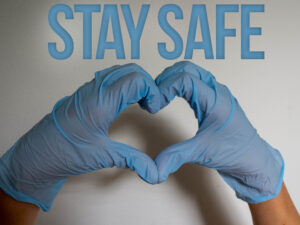-
Healthy Holiday Decisions In the time of COVID
- Posted on November 12, 2020
- by Sarah Marino
- in Health and Wellness, Latest News, Ministries/Task Force News
- Comments Off on Healthy Holiday Decisions In the time of COVID
Balancing your head with your heart.
Holidays provide us with an anchor, something familiar, trusted. Our traditions are comforting. But in this time of COVID, we may need to open our hearts and minds to something new and different. Yes, change!
Making decisions about how to have safe holidays can be stressful and possibly divisive within a family. Emotions can run high. Priorities will vary. Starting the conversation prior to a holiday can pave the way for both physical and mental well-being for your family and for you.
These checkpoints should help you in making your decisions.
Setting the stage
- Agree on some ground rules. Contact your family before the holiday to have a loving, open, honest, relaxed conversation to assess your options and set the guidelines you’ll follow. Planting seeds of thought now gives time for reflection for both you and your family members before you return to the conversation.
- Focus on how you feel about the risks, not the validity of science which could incite argument. It’s okay to politely decline attendance if necessary.
- Consider the prevention practices of those with whom you’ll be in contact. You may want to quarantine 2 weeks prior to your gathering for extra precaution.
What are the risks
- No in-person event is risk-free
- Consider the age groups and underlying medical conditions of those involved.
- Adults with these medical conditions have an increased risk for severe illness from COVID: cancer, chronic kidney diseases, COPD (lung disease), certain heart conditions, immunocompromised state, obesity, pregnancy, sickle cell disease, smoking, type 2 diabetes.
- These adults may be at an increased risk. Those with: asthma, cerebrovascular disease, cystic fibrosis, hypertension, HIV, those on corticosteroids, neurologic conditions (e.g.dementia), liver disease, pulmonary fibrosis (scarred lungs) thalassemia (blood disorder), type 1 diabetes.
- Travel risks. Your interactions with others before, during, and after travel increase your risk. Road trips are safer than public transportation. Consider the rate of infection both where you live and the area you’ll be traveling to.
- Group size. The more who are in attendance, the greater the risk.
- Length of time together
- Size of the space. Will people be able to achieve desired distancing?
- Indoor gatherings are a greater risk than outdoor gatherings
- Sharing a meal
- Poor ventilation
Other factors
- The longer you are around others with COVID-19 (even without symptoms) the more likely you are to become infected. Multiple short exposures also increase the chance.
- The virus is spread primarily in the air and can linger in the air for long periods of time.
- The virus can be spread by touching commonly used surfaces and then touching your face.
- Testing is an option, but it’s not perfect. Someone may be exposed and become infected after testing and prior to the gathering.
Those who should not attend a gathering
- People who have COVID or who have been exposed to COVID within the past 14 days
- Those with symptoms of COVID
- Those waiting for the results of COVID testing
- A person at increased risk of sever illness from COVID
Prevention
- Celebrating with members of your household is the safest option. When including family from other households, consider them as a person you’d meet in a grocery. (masks, distance, hand hygiene). Yes, awkward.
- Prevention = Mask + Distance + Hand Hygiene
- Masks worn properly – see the article and link in Peace Signs dated October 1, 2020
- Distance – at least 6 feet
- Hand hygiene – wash hands for 20 seconds (no cheating) or if not available, use hand sanitizer with at least 60% alcohol.
Increase ventilation and spacing of individuals - Avoid touching your face
- Avoid shouting and singing, especially if not wearing a mask
- Have one person with a mask and clean hands serve food. No buffet.
- Outside is better than inside
- Smaller groups reduce the risk
Take care of yourself.
Keep your feelings, comfort and responsibilities at the forefront.
Consult with a professional counsellor if you’re overwhelmed by sadness or other strong emotions.
Self-care is never a selfish act. It is simply good stewardship of the only gift I have, the gift I was put on earth to offer others. – Parker PalmerShared by Health Ministry- November 2020







